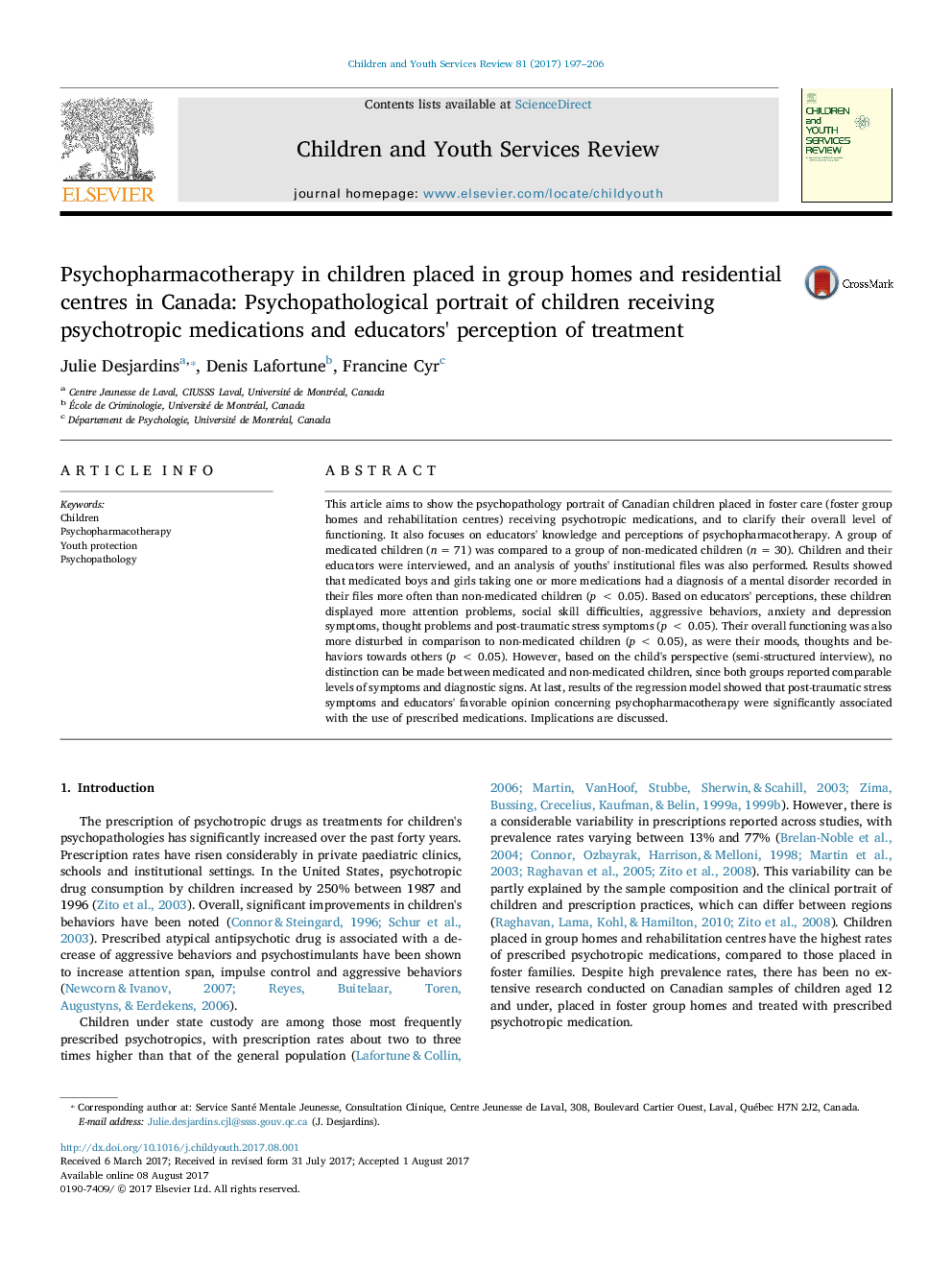ترجمه فارسی عنوان مقاله
داروهای روانپزشکی در کودکان در خانه های گروهی و مراکز مسکونی در کانادا: پرتره روانپزشکی کودکان مبتلا به داروهای روانگردان و درک پزشکان از درمان
عنوان انگلیسی
Psychopharmacotherapy in children placed in group homes and residential centres in Canada: Psychopathological portrait of children receiving psychotropic medications and educators' perception of treatment
| کد مقاله | سال انتشار | تعداد صفحات مقاله انگلیسی |
|---|---|---|
| 127336 | 2017 | 10 صفحه PDF |
منبع

Publisher : Elsevier - Science Direct (الزویر - ساینس دایرکت)
Journal : Children and Youth Services Review, Volume 81, October 2017, Pages 197-206
ترجمه کلمات کلیدی
فرزندان، داروهای روانپزشکی، حفاظت از جوانان، روانپزشکی،
کلمات کلیدی انگلیسی
Children; Psychopharmacotherapy; Youth protection; Psychopathology;

